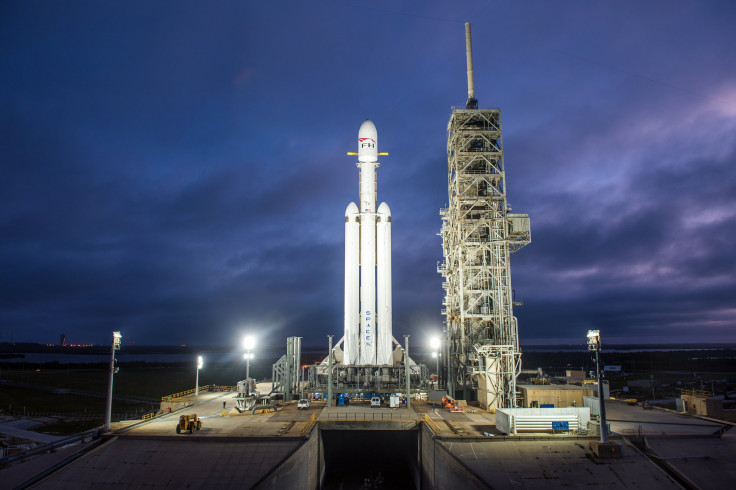SpaceX Video Shows Falcon Heavy On Launch Pad Ahead Of Static Firing

Elon Musk’s space venture SpaceX is all set for the maiden flight of its Falcon Heavy rocket, even though a launch date hasn’t been specified yet. The launch window opens Jan. 15, and the rocket is already at its launch pad in Cape Canveral, Florida.
SpaceX shared a video Tuesday of a vertical Falcon Heavy at the launch pad, pointing out once again in the Instagram post exactly how powerful the rocket is compared to other operational rockets in the world today. Its closest competition is the Delta IV Heavy, manufactured by the Lockheed Martin-Boeing joint venture United Launch Alliance.
Even the payload capacity of the Falcon Heavy (54 metric tons) is substantially larger than the Delta Heavy IV, and the only rocket to have actually flown that surpassed it in that respect was the Saturn V rocket which went to the moon. The rocket’s large capacity for payload and the power it packs are what make it a suitable vehicle for a crewed mission to the moon or even Mars.
The thrust produced by Falcon Heavy is too much for SpaceX’s development site in Texas to handle, which is why the rocket has never been tested yet. The static fire is tentatively scheduled for Saturday, but given the Falcon 9 launch Friday, and the number of delays we have already seen with the Falcon Heavy, it would be little surprise if the static fire was delayed again.
Explaining the risks involved during a speech in July, Musk himself said there was a good chance the rocket wouldn’t make it to orbit, and that he would be happy if it just makes it far enough from the launch pad in NASA’s Kennedy Space Center to not destroy it.
Whether a launch will take place or not, be it Jan. 15 or later, depends entirely on how the static firing goes.
But if all goes well (fingers crosses it does) and the rocket takes off on its intended path to a Mars orbit, it will be quite a feat for not just Musk and SpaceX, but humanity as a whole. Of course, Musk will have achieved another level of showmanship too, what with his cherry red Tesla Roadster already in the nosecone of the rocket. He has promised the car will be playing David Bowie’s “Space Oddity” as the rocket carrying it speeds to Mars.
The question is, how long will the car’s music system keep working? Even by Musk’s standards, a billion years certainly seems a bit of a stretch.
© Copyright IBTimes 2025. All rights reserved.




















